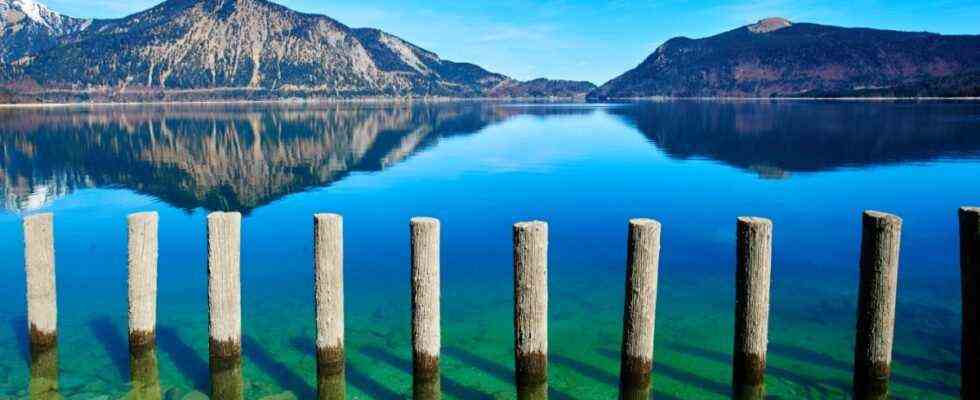The municipality of Kochel wants to continue to address the garbage problem at Walchensee by consistently avoiding garbage cans. In accordance with the Lower Nature Conservation Authority in the District Office, the focus is instead on information and awareness-raising. Because, so the argument goes, experience has shown that rubbish bins only lead to more rubbish because people often misused the bins and disposed of their household rubbish or even disused electrical appliances there.
For more than 20 years this strategy has been used in the recreational areas in the district and in the parking bays of the district and federal roads. One would like to hold on to that. “Even if some people looking for relaxation – guests and locals alike – have not yet experienced the educational effect,” as Franz Steger, head of the Lower Nature Conservation Authority in the district office, said in response to a request from Mayor Thomas Holz (CSU). In the protected areas on the Isar and Walchensee, the nature conservation rangers collected rubbish and disposed of it in “hidden rubbish bins” or directly in the landfill. These disposal costs would be paid from the nature conservation budget or from funds for “wild garbage dumps”. Mayor Holz spoke out in the local council on Tuesday in favor of not deviating from this line, because one had had “good experiences” in over two decades. According to Holz, the rubbish that building yard employees collect almost every day at Lake Walchensee and that the community has to remove for a fee has “not become more, but less.” Even if there are still “unteachable” people who deal irresponsibly with nature and the landscape.
To illustrate this, Holz had brought photos showing dog toilets overflowing with rubbish. Because some citizens asked whether rubbish bins could not be set up at Walchensee, he turned to the Lower Nature Conservation Authority at the beginning of July, said the mayor. There they continue to rely on education and awareness-raising, but they would like to “vote on further necessary measures,” the letter says. In the ongoing campaign “Conservation begins with you”, which is met with great interest “far beyond the district boundaries”, the topic of rubbish is particularly addressed, said Holz. In addition, they are considering, together with the district office, to revisit the press campaign that accompanied the dismantling of the rubbish bins 20 years ago. On the signs at the time, there was a longer text and an illustration by Ernst Hürlimann, on which a couple was lying on a picnic blanket in the middle of rubbish.
Klaus Barthel (SPD) questioned whether signs and campaigns alone would solve the problem, who was the only one who voted against sticking to the long-term strategy. Barthel doubted that “only good experiences” had been made; the photos presented by Holz speak a different language. The number of day tourists has grown enormously in the past 20 years. In addition, visitors would have to pay parking fees plus spa tax in the future. Those who pay may feel entitled to leave the garbage for the community. Barthel suggested setting up small rubbish bins on a trial basis in certain places. Other churches did the same. “You’re saying something again that is wrong,” complained Holz. No litter bins would be set up in protected landscape areas; therefore, there is less garbage overall. And people only paid the fees for parking. Markus Greiner (Young List) suggested showing the littering drastically in the form of shock images in order to shake people up.

